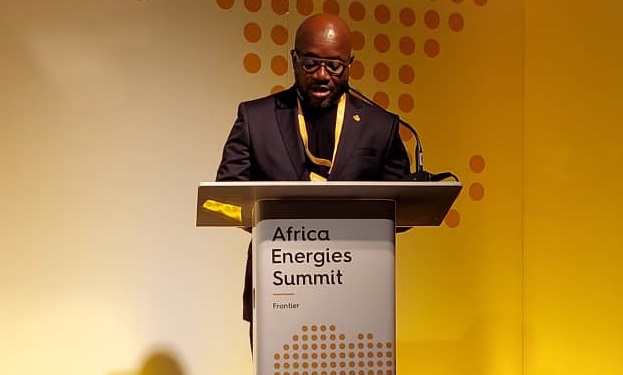
Deputy Energy Minister woos investors to Ghana’s energy hub
A Deputy Minister of Energy, Andrew Egyapa Mercer, has urged the global business community to direct their interests to Ghana’s ambition of creating the biggest petroleum products hub in West Africa.
He said the country had by statute launched the hub that would include the construction of three refineries with a minimum production capacity of 900,000 barrels per day; five petrochemical processing plants as well as the building of industrial and storage infrastructure.
Advertisement
For a start, he said, the government had secured 20,000 acres of land in the Jomoro Municipality in the Western Region for the project, saying “Ghana is open to investments in the hub.”
Mr Mercer who is also the Member of Parliament for Sekondi, made the call when he delivered the keynote address at this year’s Africa Energies Summit in London.
It was attended by key energy players investing in the African continent and decision-makers, corporate players in Africa as well as finance, legal and service supply companies, African governments and national oils corporations.
Mr Mercer noted that factors such as the central location of Ghana and access to vibrant shipping routes which provided easy access to the regional market, made the hub project very viable and that “we accordingly want investors to take a close look at this project.”
The deputy minister said the country had seen the need to develop a National Energy Transition Plan to guide her journey towards attaining net-zero status at a pace realistic to her peculiar circumstances.
"Ghana’s plan will be informed by both available and prospective energy sources, accessible financing and other factors,” he assured.
Fossil fuels
Mr Mercer noted that the turbulence to be felt by fossil-dependent African nations like Ghana in this transition period was inevitable, adding that “the manifestations of global efforts at shifting towards cleaner energy sources will undeniably have an adverse impact on Ghana’s petroleum upstream activities and ambitions”.
He said the drastic reduction in western funding for fossil-related projects, as well as the revision of business modules of major Exploration and Production (E&P) Corporations to lean toward renewables, were a few of many eminent threats to Ghana’s and by extension, Africa’s growing oil sector.
He noted that there existed a real risk of stranded assets owing to Ghana’s vast unexploited oil and gas reserves, but that notwithstanding, Ghana still regarded its crude as a resource vital for national development and the very medium it can use to fund its way to a net-zero status.
“The intermittent nature of renewable energy sources as well as the cost implication of technology required to effectively harness same renders renewables incapable of satisfying baseload demands,” Mr Mercer indicated.
Transitional Fuel
He said for Ghana and many other African nations, natural gas had been identified as the transition fuel of choice, a conclusion which necessitated the continuation of responsible oil and gas exploration and production.
Mr Mercer said the fact still remained the fact that petroleum products would remain a need for some decades, in spite of the global shift away from fossil fuels.
Local Content
He explained that the global players that Ghana had passed an amendment to its local content and local participation regulations to include channel partnerships and strategic alliances in the petroleum upstream sector - a novelty which is projected to enhance indigenous participation in upstream related activities.
These gains notwithstanding, he assured that Ghana was far from comfortable with its present progress and recognized that more ought to be done.
Mr Mercer noted that despite the strides African nations were making in satisfying their respective energy needs, “Africa must stay on its toes and be fully cognizant of her present obligations to the future of its people.”
He urged African nations not to be oblivious to the reality of changing trends in the global energy space.
He indicated that the fast-progressing energy transition will remain a crucial topic for world leaders for decades to come and its implications must not be lost on us.
“For African nations, efforts ought to be made at fully appreciating the challenges as well as opportunities that this phenomenon comes with. Commitments to the net-zero agenda must go beyond mere lip service to concrete strategizing, policy reformation and implementation,” he noted.




